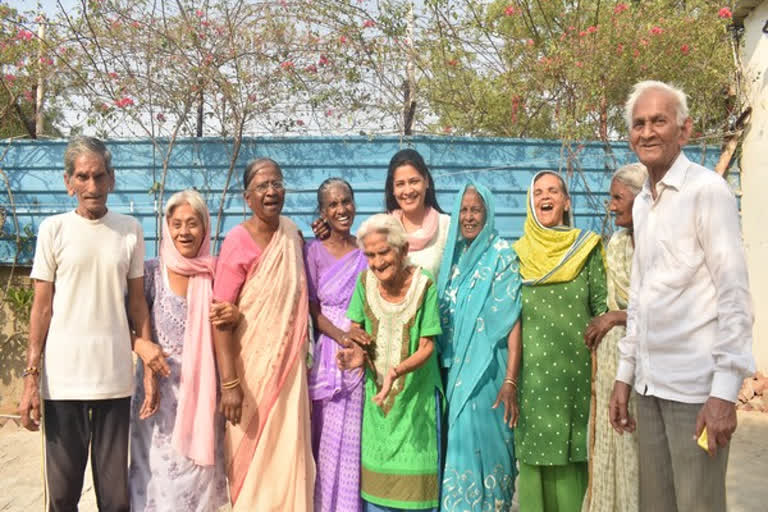New Delhi: A small settlement with tiny rooms dominated by rat squeaks located a few miles away from the buzzing roads of the national capital, is home to about a dozen old citizens, who have no place elsewhere.
These senior citizens live with their unheard stories of the physical and mental abuse, the torment that they once suffered at the hands of their own children.
June 15, marks the World Elder Abuse Awareness Day that aims to raise awareness about adults falling prey to elder abuse, neglect and financial exploitation.
According to 2016 data by the Ministry of Social Justice, the population above the age of 60 in our country forms a share of 9.30 per cent, and one out of four elderly faces abuse in India, according to 2018 data by HelpAge India.
Meanwhile, this small establishment, Mann Ka Tilak, shelters those neglected and abandoned by their families. The rooms echo with the cries of the abuse they suffered at the hands of their own blood, their own children. From Delhi to Kolkata and Burma, many elderly have found their new home in this establishment.
A 90-year old frail yet cheerful woman, Champiya hides her agony behind her toothless smile. "As I fell ill once, my son put a shoe in my mouth and beat me so hard that now I find it difficult to hear from my right ear," she said.
"A year ago my daughter told me that we were going out and left me here. I cried a lot that day," Champiya amma, as people at the old age home call her, added.
On asked if her children still talk to her, the old lady happily said, "I talk to my daughter over the phone about once in two months. She will soon come to meet me. She will take me to the bank to cash out my pension."
Champiya amma says she has no contact with her son but even after all the pain, she still hopes to meet him someday.
Shravan amma, another inmate at the settlement says she was once asked by her son, "When will you die?"
Daily thrashing became a part of the 57-year old's life and she made herself used to it until Shravan amma hired a lawyer who advised her to move out.
"I lived on rent, sometimes at random places, sometimes at my maternal home," Rukmani amma said fighting her tears back.
